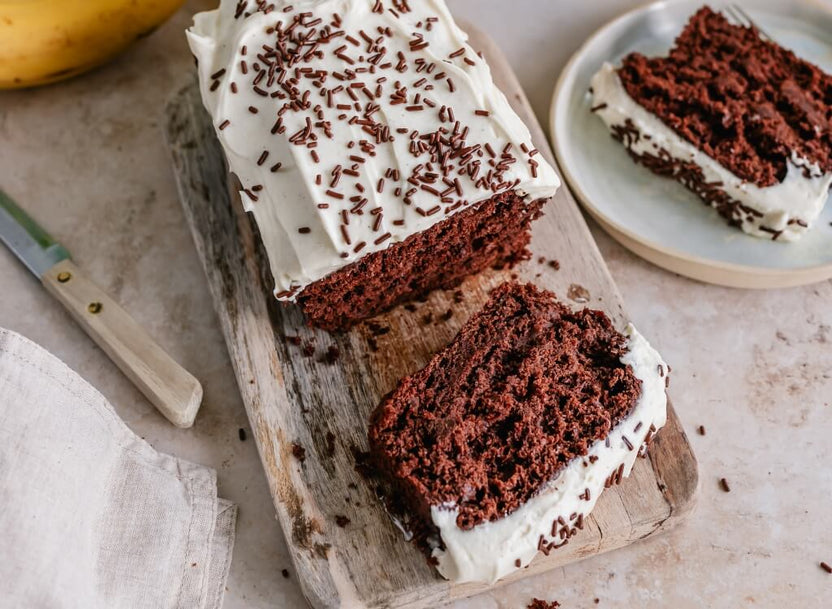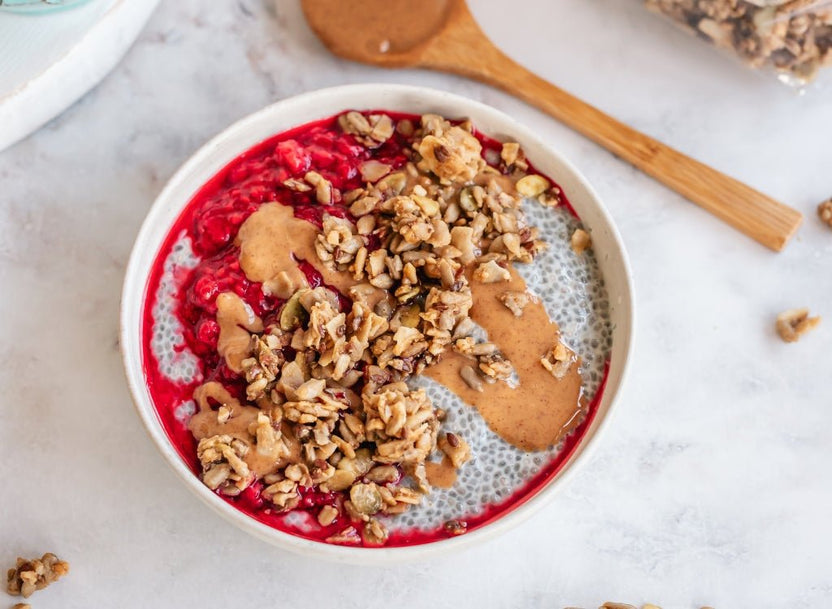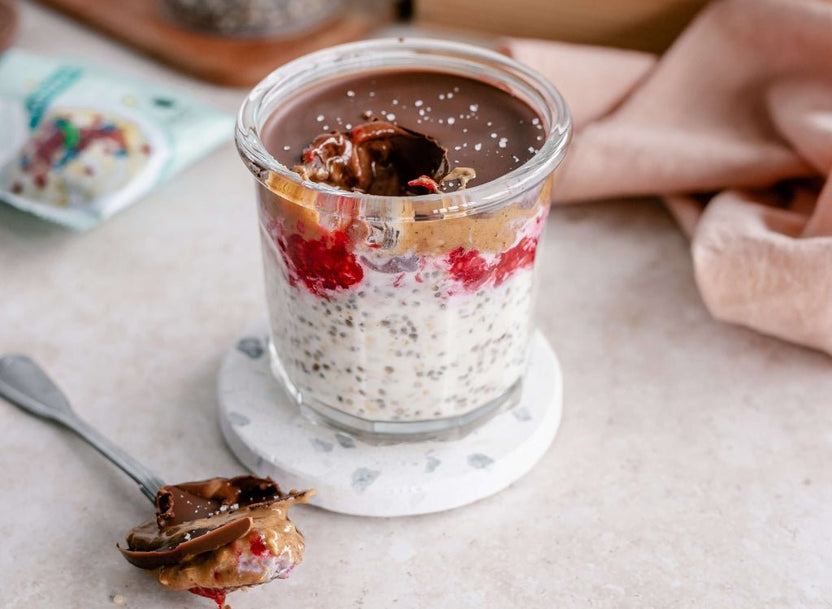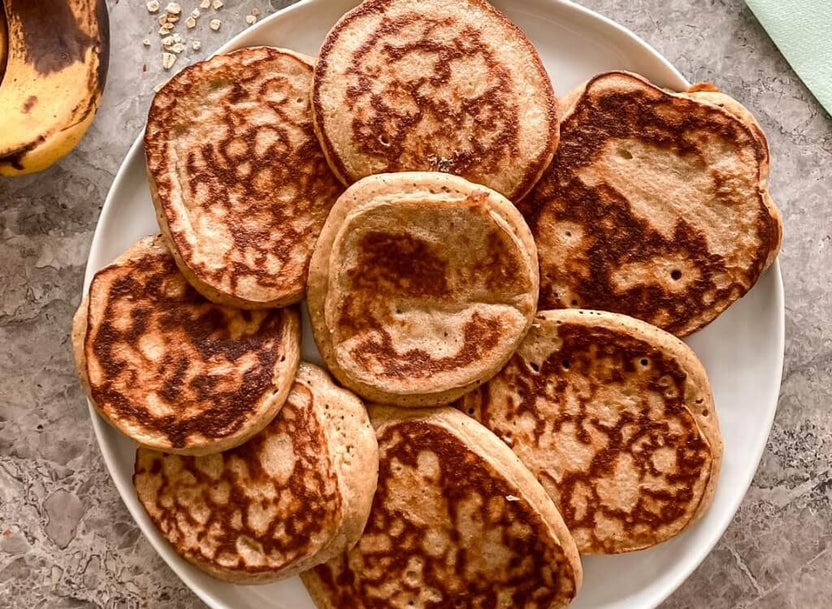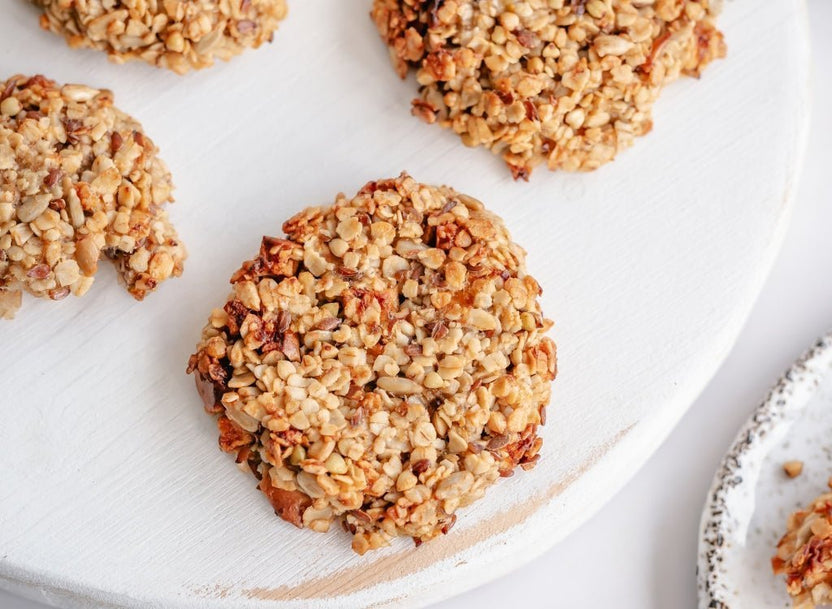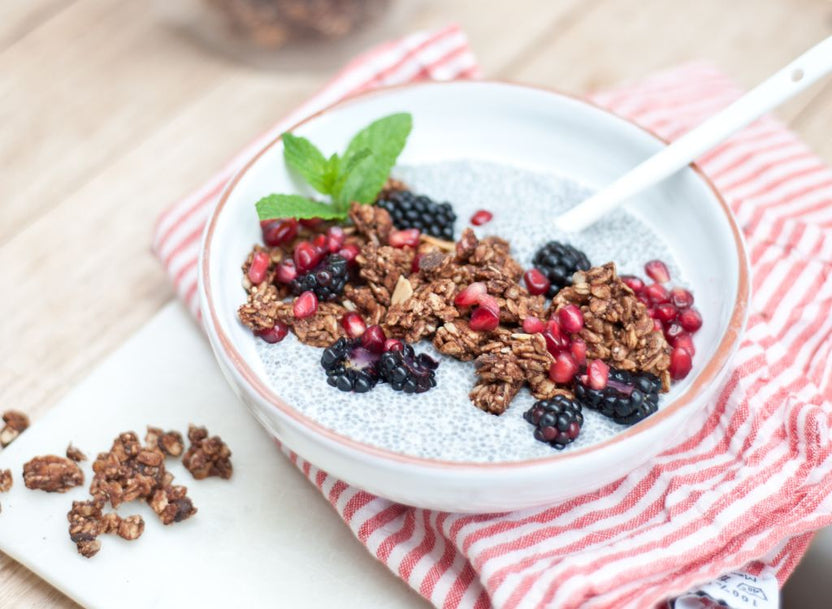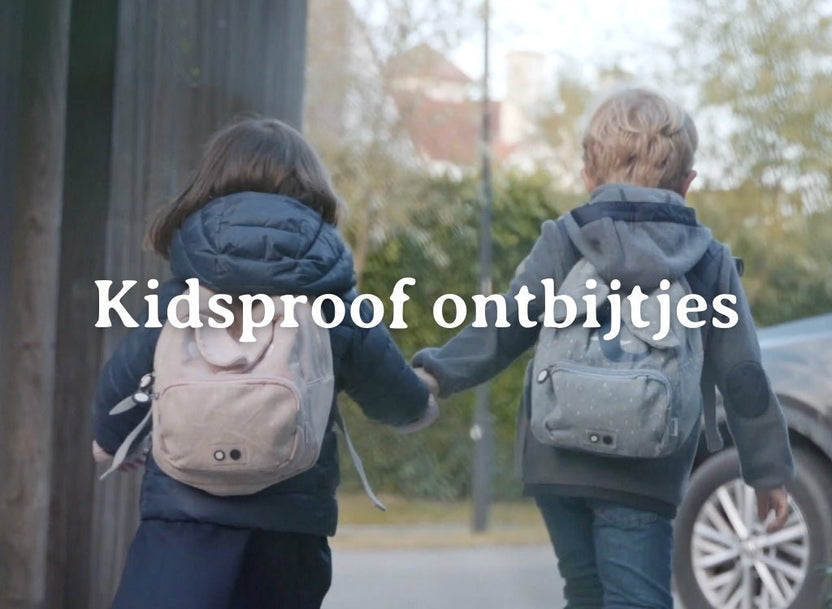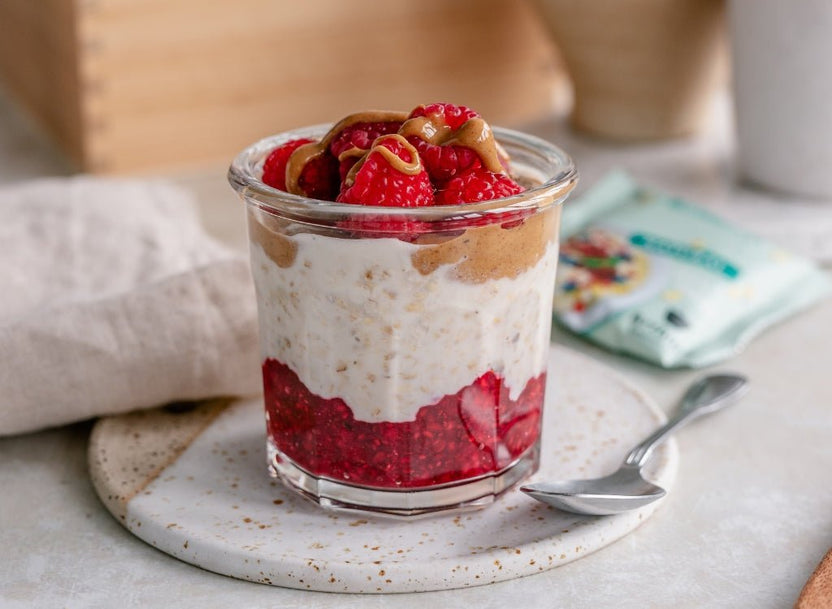Granola gluten-free: what should you pay attention to?
Is granola gluten free? Learn how to make a safe choice, what the official gluten free logo means and how to make healthy gluten free granola yourself.
Granola gluten-free: what should you pay attention to?
More and more people are consciously choosing a gluten-free diet. Some for medical reasons, others from personal preference. Granola seems like a healthy and safe choice, but did you know that granola is not automatically gluten-free? In this article you will discover everything about gluten-free granola : what it is, how to recognize it, what to look for when buying it and how to make it yourself.

What is gluten?
Gluten are proteins that occur naturally in grains such as wheat, barley, rye and spelt . They provide elasticity in dough, but can cause serious complaints in some people.
There are three groups of people who avoid gluten:
- People with celiac disease (autoimmune disease)
- People with gluten sensitivity
- People who eat gluten consciously for their overall health
It is essential for them to also pay close attention to breakfast cereals such as granola.
What does gluten do to your body?
Gluten is harmless to most people, but can cause physical complaints in some people. We distinguish three situations:
1. Celiac disease (gluten intolerance)
This is an autoimmune disease in which the body responds to gluten with an inflammatory reaction in the small intestine. This damages the lining of the intestine, which can lead to:
- Stomach ache and cramps
- Chronic diarrhea or constipation
- Fatigue
- Weight loss
- Iron deficiency or vitamin deficiencies
- Growth or development problems in children
Celiac disease requires a strict, lifelong gluten-free diet .
2. Non-celiac gluten sensitivity
People with this sensitivity have similar symptoms, but without intestinal damage. Symptoms may include:
- Bloated feeling
- Stomach ache
- Headache or fatigue
- Skin complaints or mood swings
For them, avoiding gluten can help, but it doesn't always have to be strict.
3. Wheat allergy
A classic allergic reaction to proteins in wheat (not just gluten), with symptoms such as sneezing, rash, or difficulty breathing. This requires a wheat-free diet, but not necessarily gluten-free.
Should everyone eat gluten-free?
No. For people without celiac disease or sensitivity, there is no evidence that a gluten-free diet is healthier. On the contrary, unnecessary gluten-free eating can lead to:
- Less fiber intake (for example from whole wheat bread or pasta)
- Higher costs (gluten-free products are often more expensive)
- Unnecessary restrictions and less variety
Gluten is not a toxin . Only people with medical reasons need to avoid gluten completely. For others, it is more important to choose whole grain, fiber-rich and unprocessed foods .
Is granola gluten free?
Not always. Although granola is often made from oat flakes, these are not gluten-free by default. Oats are often processed in factories where wheat or rye is also present, which can lead to cross-contamination with gluten.
Granola is only gluten-free if:
- Certified gluten-free oats are used
- No ingredients containing gluten have been added (such as spelt flakes, barley malt, puffed wheat)
- The product is produced separately without cross-contamination
How do you recognize gluten-free granola?
When purchasing, please note:
- ✅ The gluten-free logo on the packaging (usually a crossed-out ear)
- ✅ The words “gluten-free” or “sans gluten”
- ✅ Ingredients such as gluten-free oat flakes, nuts, seeds, honey
- 🚫 Avoid products containing barley malt, wheat germ, spelt flakes or grain mixes

Is granola gluten free in restaurants or buffets?
Be extra careful. Even if the buffet says "granola," it's often a commercial mix containing spelt, malt, or sweetened wheat flakes.
Ask for:
- What grains were used?
- Is it a certified gluten-free product?
- Is it prepared or stored separately?
➡️ When in doubt: bring your own or skip it.
Benefits of Gluten Free Granola
- ✅ Rich in fiber (if made with whole oats)
- ✅ Contains healthy fats from nuts and seeds
- ✅ Long-lasting energy through complex carbohydrates
- ✅ Easier to digest for people with a sensitive gut
Please note: gluten-free does not automatically mean healthy!
Many gluten-free products contain:
- 🚫 Too much added sugar or syrup
- 🚫 Unhealthy fats
- 🚫 Low in fiber or protein
So choose consciously and check the label. A healthy gluten-free granola is:
- < 10g sugar / 100g
- > 6g fiber / 100g
- With natural ingredients such as oat flakes, nuts and seeds
Also read more about 'Which granola is healthy' here ?
Make your own gluten-free granola
Want to be 100% sure about what you're eating? Make your own granola!
🌾 Recipe: gluten-free nut granola
Ingredients:
- 200g gluten-free oat flakes
- 50g walnuts
- 30g almonds
- 2 tbsp pumpkin seeds
- 1 tbsp chia seeds or boost mix
- 2 tbsp coconut oil
- 2 tbsp maple syrup (or honey)
- Pinch of cinnamon
Preparation:
- Preheat the oven to 160°C.
- Mix everything in a large bowl.
- Spread on a baking sheet lined with baking paper.
- Bake for 20-25 minutes, stirring halfway through.
- Let cool completely.
✅ Store airtight – lasts up to 2 weeks.

Our gluten-free granolas
At Arthur's Breakfast Box we make granola in small batches with 100% natural ingredients. We always use whole grain oats and no other gluten-containing grains. However, we do not work with certified gluten-free oats and our granolas are packaged in an environment where gluten is also processed.
Some varieties contain no grains (including oats) and are completely gluten-free, but these are repackaged in the same environment and may therefore contain a limited amount of gluten due to cross-contamination.
Think of our Low Carb granolas ' Nutty Chocolate ', ' Berries ' and ' Peanut Love '.
These granolas are therefore suitable for people who consciously want to eat gluten-free, but not for those who have celiac disease and have to eat a very strict gluten-free diet.
Frequently Asked Questions (FAQ)
1. Are oats gluten free?
Naturally yes, but often contaminated by processing. Always choose certified gluten-free oat flakes .
2. What is the difference between gluten-free and wheat-free?
Gluten free = no gluten (so no wheat, barley or rye). Wheat free can still contain gluten from e.g. spelt, oats or barley.
3. Is granola gluten-free if it is available in a health food store?
Not always. Always read the label and check for certification. Health food stores offer both gluten-containing and gluten-free varieties.
4. Can you eat granola if you have celiac disease?
Yes, but only if it is certified gluten-free and prepared separately. Also watch out for contamination via cutlery or storage jars.
5. Are gluten-free products healthier?
Not necessarily. A gluten-free product can still contain a lot of sugar or bad fats. Healthy = the right ingredients in the right balance.
Want to know more?
Wondering which granola is really healthy – gluten-free or not? 👉 Which granola is healthy?
Or discover: 👉 Is yogurt with granola healthy?
